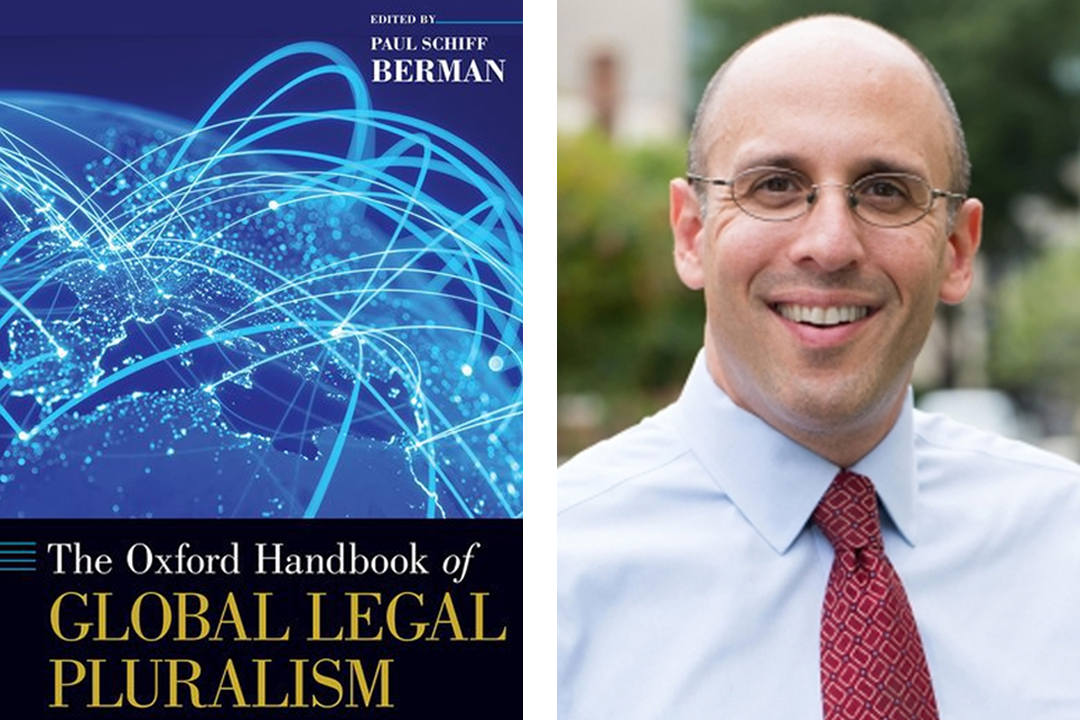In his newly edited book, The Oxford Handbook of Global Legal Pluralism (Oxford University Press, 2020), Professor Paul Schiff Berman helps to define the field of global legal pluralism and helps us to understand how law operates in a world of multiple legal systems and authorities.
Over the past two decades Global Legal Pluralism has become one of the leading analytical frameworks for understanding and conceptualizing law in the 21st century. Wherever one looks, there is conflict among multiple legal regimes. Some of these regimes are state-based, some are built and maintained by non-state actors, some fall within the purview of local authorities and jurisdictional entities, and some involve international courts, tribunals, and arbitral bodies, and regulatory organizations.
Global Legal Pluralism has provided, first and foremost, a set of useful analytical tools for describing this conflict among legal and quasi-legal systems. At the same time, some pluralists have also ventured in a more normative direction, suggesting that legal systems might sometimes purposely create legal procedures, institutions, and practices that encourage interaction among multiple communities. These scholars argue that pluralist approaches can help foster more shared participation in the practices of law, more dialogue across difference, and more respect for diversity without requiring assimilation and uniformity. Despite the veritable explosion of scholarly work on legal pluralism, conflicts of law, soft law, global constitutionalism, the relationships among relative authorities, transnational migration, and the fragmentation and reinforcement of territorial boundaries, no single work has sought to bring together these various scholarly strands, place them into dialogue with each other, or connect them with the foundational legal pluralism research produced by historians, anthropologists, and political theorists.
Professor Berman, one of the world's leading theorists of Global Legal Pluralism, has gathered over 40 diverse authors from multiple countries and multiple scholarly disciplines to touch on nearly every area of legal pluralism research, offering defenses, critiques, and applications of legal pluralism to 21st-century legal analysis. Professor Berman also provides introductions to every part of the book, helping to frame the various approaches and perspectives. The result is the first comprehensive review of Global Legal Pluralism scholarship ever produced. This book will be a must-have for scholars and students seeking to understand the insights of legal pluralism to contemporary debates about law. At the same time, this volume will help energize and engage the field of Global Legal Pluralism and push this scholarly trajectory forward into another two decades of innovation.
“I find my scholarship on global legal pluralism frequently informs my teaching as well,” said Professor Berman. “Much of my first-year Civil Procedure course and all of my upper-level Conflict of Laws courses focus on how legal systems interact with each other, whether we are addressing the many sovereignties that co-exist in the U.S. federal system, or the transnational legal interaction of nation-states across the globe. And, in my advanced seminar on Law and Globalization, we tackle these sorts of systemic questions head-on, using a variety of philosophical, sociological, and legal texts to consider how best to navigate a world of inevitable legal pluralism.”
Professor Berman, the Walter S. Cox Professor of Law, is one of the world’s foremost theorists on the effect of globalization on the interactions among legal systems. He is the author of over 60 scholarly works, including Global Legal Pluralism: A Jurisprudence of Law Beyond Borders, published by Cambridge University Press in 2012. He also was among the first legal scholars to focus on legal issues regarding online activity, and he is co-author of one of the leading casebooks in the field. He has visited at Princeton University, Queen Mary University of London, University of Bremen (Germany), and Southern Cross University (Australia).


